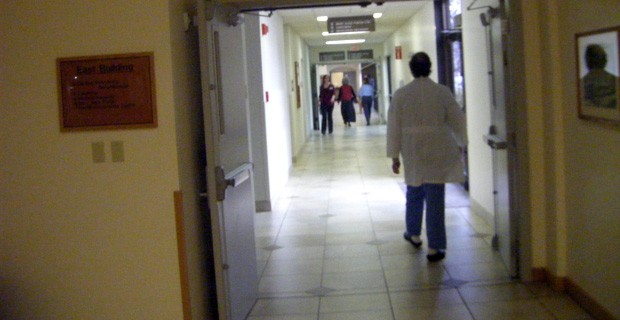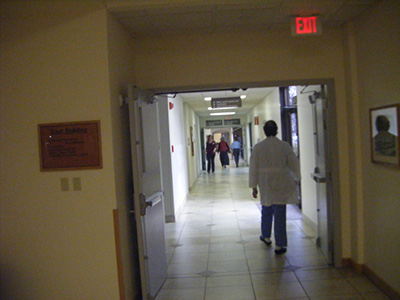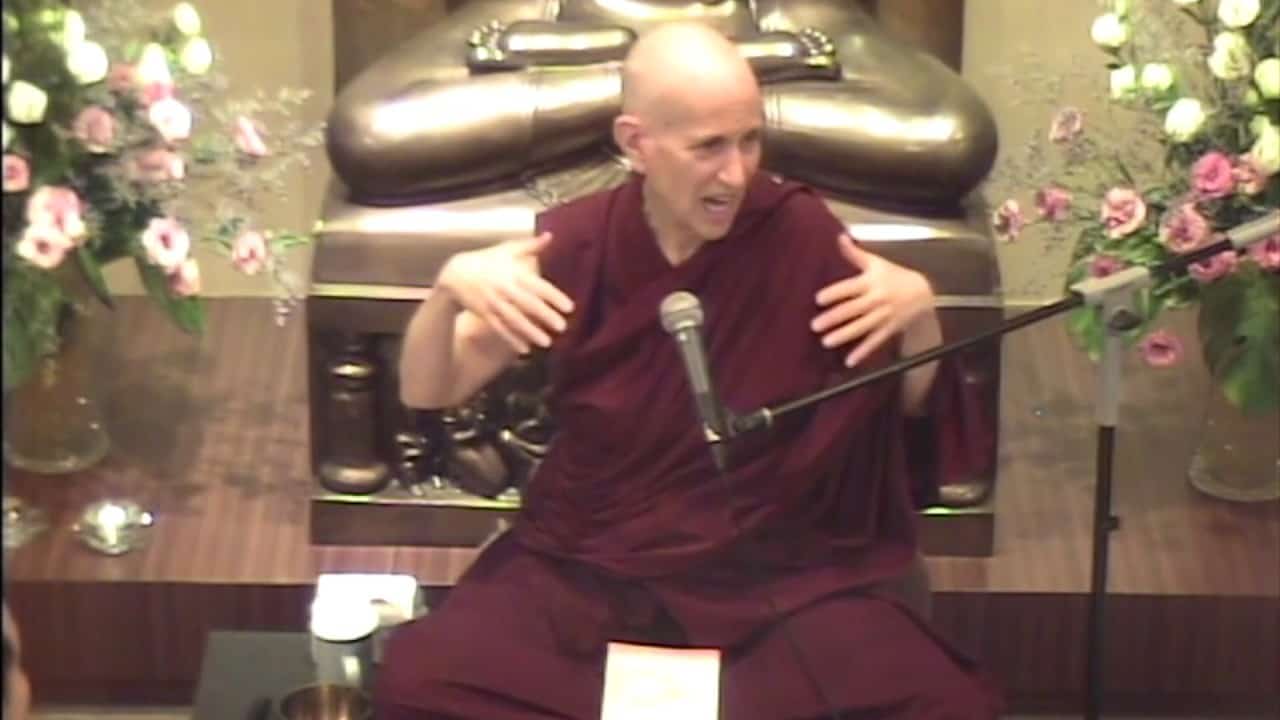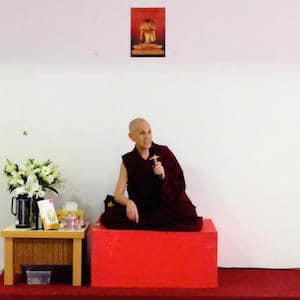Meditation in a psychiatric hospital setting

In November, 2016, I visited Eastern State Hospital at the invitation of one of the administrators. She wanted the administration to experience meditation in the hope that meditation could be offered to the staff and patients of the psychiatric hospital. As a former Psychiatric Nurse Practitioner, this gave me the opportunity to share my knowledge of meditation in an environment that I was very familiar with.

This gave me the opportunity to share my knowledge of meditation in an environment that I was very familiar with. (Photo by Bradley Gordon)
Eastern State Hospital is one of two inpatient psychiatric hospitals in Eastern Washington State. Eastern State hospital serves 18 counties and was established in 1891 in Medical Lake, a small community 20 miles south of Spokane.
The hospital provides evaluation and inpatient treatment for individuals with serious or long-term mental illness who have been referred to the hospital through the Behavioral Health Organization (which coordinates mental health and substance use treatment services), the civil court system (where individuals have received a civil court order for involuntary treatment), or through the criminal justice system. It has 287 beds including a forensic services unit. This unit serves clients who have been committed to the hospital and includes defendants who are undergoing an inpatient evaluation for competency to stand trial and/or mental state at the time of the criminal offense. This unit also provides treatment for clients who have been found not guilty by reason of insanity.
The second hospital, the Psychiatric Treatment and Recovery Center (PTRC), serves clients who have been civilly committed to the hospital. The center is divided into 3 areas:
- PTRC-EAST; which contains treatment units serving older adult clients.
- PTRC-CENTRAL; which contains treatment units serving adult clients who have been newly admitted and/or continue to experience acute psychotic symptoms.
- PTRC-SOUTH; which contains treatment units serving adult clients who experience more chronic mental illness symptoms.
I met with six of the administrators and led them through a simple body scan and breathing meditation, and concluded with a brief loving-kindness meditation. I described the research initiated by His Holiness the Dalai Lama and prominent neuroscientists that has demonstrated the many benefits of even brief meditation. They experienced the calming result of a short meditation and were open to a discussion about offering meditation to staff and patients. A week later I met with the chaplain who gave me a tour, and we talked about how best to introduce meditation to the facility.
Many of the patients have no family or friends that visit them. Those who are committed by civil court have an average stay of 45 to 60 days and then are released to the community. Others are too ill to be released and live out their lives in the hospital.
I found Eastern State hospital’s mission and core values very compatible with the values and worldview of Buddhist practitioners. Their mission is to transform lives by supporting sustainable recovery, independence and wellness.
Their vision: People are healthy, safe, and supported, and taxpayer resources are guarded.
Core values
- Honestly and integrity
- Pursuit of excellence
- Open communication
- Diversity and inclusion
- Commitment to service
- Respect
- Teamwork and collaboration
Recovery Principles
- Hope
- Self-management and autonomy
- Dignity and self-respect
- Tolerance and forgiveness
- Adaptability and capacity to change
- Restoration and personal growth
- Personal responsibility and productivity
- Peer support and community life
- Acceptance and self-awareness
Traditionally, those who are mentally ill are not afforded the resources of other patient populations and as a group are stigmatized in our society. Offering methods to help them cope with severe illness as well as social stigma would be a wonderful opportunity for them. Caring for those who are severely mentally ill is a demanding and stressful job, so teaching staff methods to rebalance and calm themselves would be beneficial. I look forward to teaching staff and patients meditation so that they can experience its many benefits.
Venerable Thubten Jigme
Venerable Jigme met Venerable Chodron in 1998 at Cloud Mountain Retreat Center. She took refuge in 1999 and attended Dharma Friendship Foundation in Seattle. She moved to the Abbey in 2008 and took sramanerika and sikasamana vows with Venerable Chodron as her preceptor in March 2009. She received bhikshuni ordination at Fo Guang Shan in Taiwan in 2011. Before moving to Sravasti Abbey, Venerable Jigme (then Dianne Pratt) worked as a Psychiatric Nurse Practitioner in private practice in Seattle. In her career as a nurse, she worked in hospitals, clinics and educational settings. At the Abbey, Ven. Jigme is the Guest Master, manages the prison outreach program and oversees the video program.


